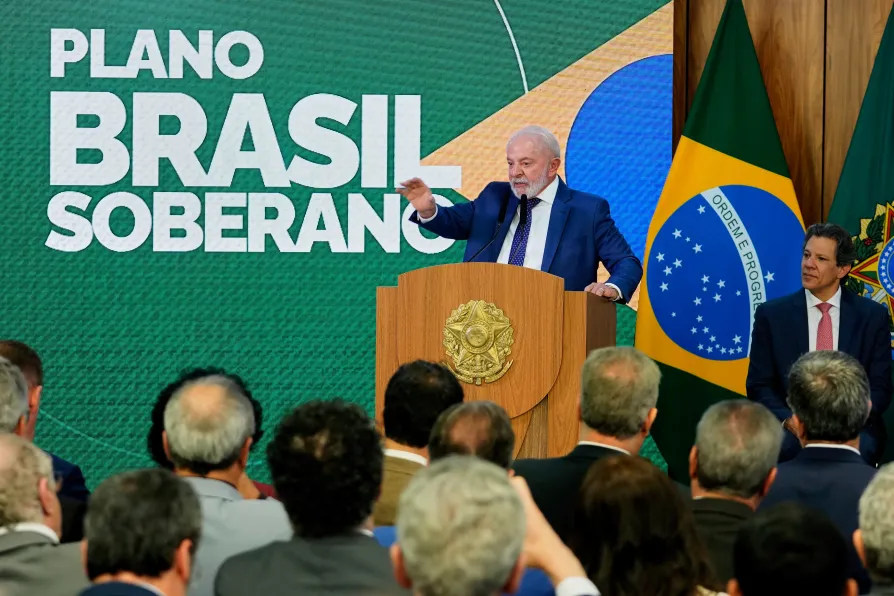
 Brazil's President Luiz Inacio Lula da Silva speaks during a signing ceremony to enact the Sovereign Brazil Plan, an aid programme to support companies affected by the 50 per cent tariffs imposed on Brazilian products in the US, August 13, 2025
Brazil's President Luiz Inacio Lula da Silva speaks during a signing ceremony to enact the Sovereign Brazil Plan, an aid programme to support companies affected by the 50 per cent tariffs imposed on Brazilian products in the US, August 13, 2025
BRAZIL will respond to US tariffs with increased state support for its industries and closer integration of the Brics group of emerging powers, President Luiz Inacio “Lula” da Silva has announced.
Unveiling his Sovereign Brazil package on Wednesday, President Lula authorised a credit lifeline of 30 billion reals (£4.1bn) on companies hit by the US’s new 50 per cent tariffs, conditional on their agreement not to cut jobs.
The state will increase direct public procurement of goods affected by the tariffs to maintain demand, and apply various tax exemptions and export incentives to support producers.
Lula said the measures were his answer to “unilateral aggression” from United States President Donald Trump, whose administration responded by slapping sanctions on two more Brazilian officials. “Our sovereignty is untouchable,” he vowed.
Increased public procurement of products such as beef and coffee, which are major exports to the United States, will reinforce Lula’s existing agricultural policies.
The National School Feeding Programme and Public Acquisition Programme involve state purchases of produce from small family and co-operative farms for use in schools, hospitals, prisons and other public facilities, aiming to protect small-scale agriculture from takeover by big agribusiness. A study by the Institute for Applied Economic Research published earlier this year found both programmes had significantly boosted incomes among poor farmers.
On the Brics, Lula called for closer collaboration, including over alternatives to trading in the US dollar.
“We do not want to mess with the dollar,” he said, “but we must test alternatives for trade among Brics nations.” He revealed details of a major trade trip to India early next year. China, in responding to the US announcement of hefty tariffs on Brazil earlier this month, approved 183 new licences for coffee producers from the country to export to it, and announced solidarity with Brazil in working to overcome tariffs.
Lula’s responses — deepening the state’s directive role in the economy and South-South co-operation — are the opposite of what Trump allies hope to achieve in forcing foreign countries into line with US wishes.
But the Brazilian president said: “We cannot be scared, nervous and anxious when there is a crisis. A crisis is for us to create new things.”













